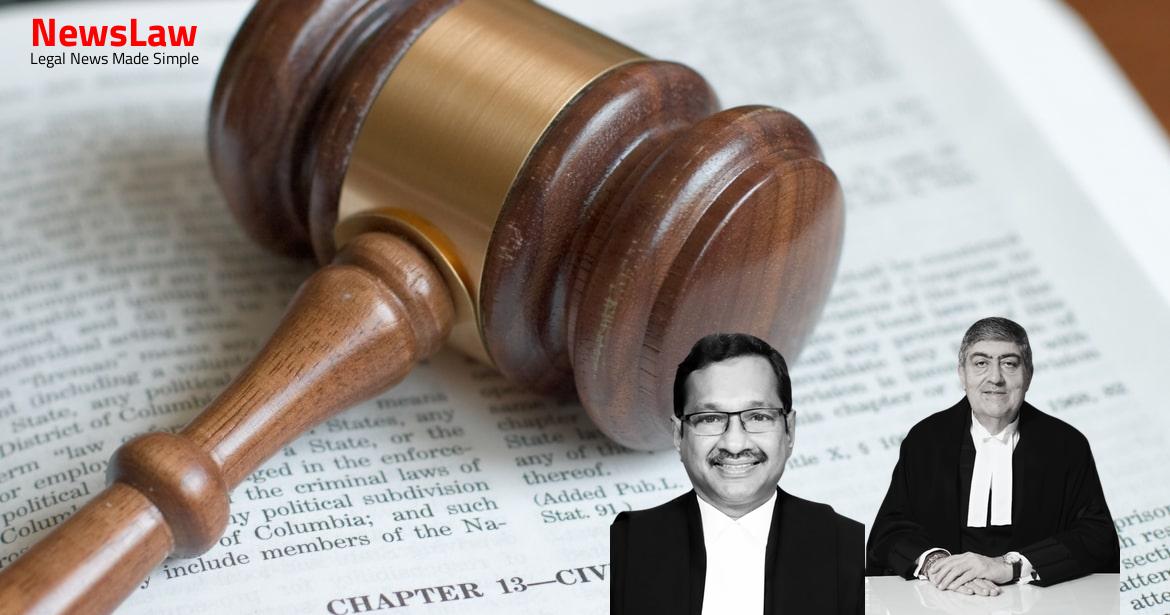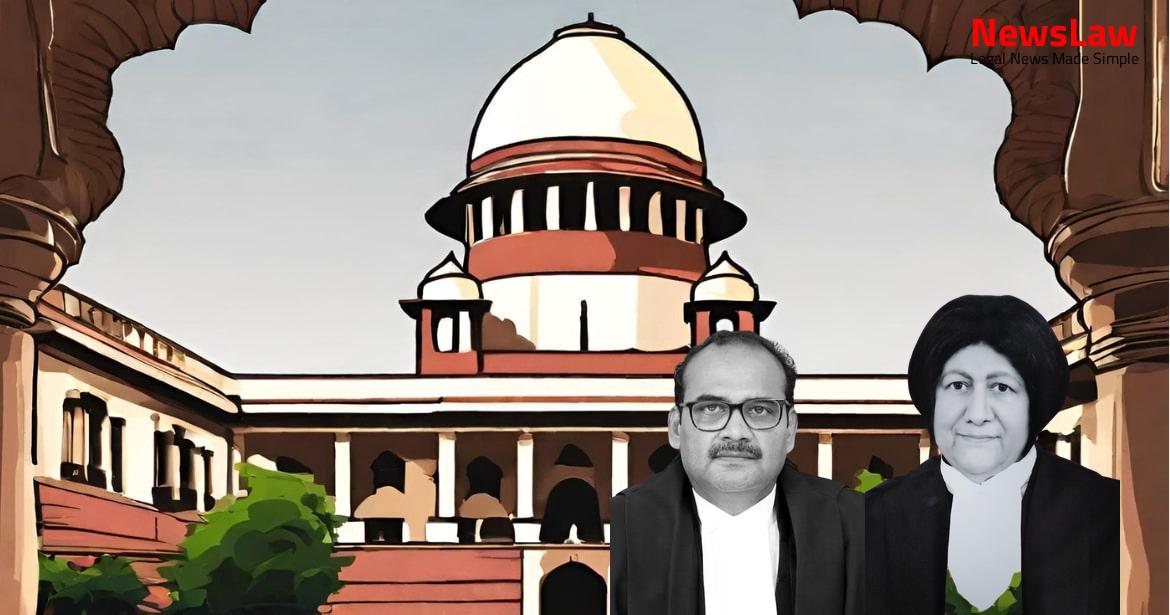Delve into the in-depth legal analysis conducted by the court in a recent judgment regarding the quashing of a complaint. The court meticulously examined the evidence presented, jurisdictional aspects, and the legal validity of authorizations in commercial transactions. Explore the insightful legal reasoning that led to the dismissal of the case against the appellants in this complex legal dispute.
Facts
- The complaint alleges that the 1st respondent-complainant paid a security deposit for 360 empty cylinders at Rs.700 per cylinder to the accused company.
- The accused company appointed the 2nd respondent as a distributor for LPG cylinders in Panchkula and Chandigarh.
- Statements of witnesses were recorded from 17th November 2004 onwards by the Judicial Magistrate.
- The Magistrate sent the complaint for investigation under Section 202 of the Cr.PC.
- The complaint accuses the 2nd respondent, along with accused nos. 5 and 6, of fraud in the LPG business.
- The appellants in the appeals filed a petition to quash the complaint and summoning order.
- Allegations include breach of Distributorship Agreement, dishonored cheque, and non-delivery of refills.
- Private complaint by the 1st respondent alleges non-delivery of refills, failure to refund deposit, and fraud by the accused company.
- High Court dismissed the petition to quash the complaint.
- Accused company alleged to have cashed a demand draft and breached trust by not refunding the security deposit.
Also Read: Legal Interpretation of Overriding Effect in Food Safety Legislation
Arguments
- The High Court dismissed the quashing petition on 25 August 2014.
- The High Court stated that disputed questions of fact were involved in the petition.
- The High Court mentioned that these disputed questions of fact can only be resolved after recording evidence.
- Accused company never authorized the 2nd respondent-accused to execute the agreement on its behalf.
- No allegations against the appellants about committing any offence based on the complaint.
- No case made out in the complaint to issue a process against the appellants.
- The High Court did not consider the case on its merits.
- The Police report under Section 202 of the Cr.PC may not have been on record.
- The Distributorship Agreement empowered the 2nd respondent to act on behalf of the accused company.
- The security deposit amount went to the account of the accused company.
- The High Court’s decision to allow the 1st respondent-complainant to lead evidence was justified.
- The issue of whether the 2nd respondent was authorized to execute the agreement can be determined after evidence is presented.
- The learned Magistrate had the jurisdiction to conduct the inquiry himself, as specified in sub-section (1) of Section 202 of the Cr.PC.
Also Read: Analysis of Improper Grant of Bail in the Director of Enforcement v. Bablu Sonkar Case
Analysis
- The POS agreement does not show authorization for the 2nd respondent to execute it on behalf of the accused company.
- Some accused, including three appellants, resided outside the jurisdiction of the Magistrate’s Court where the complaint was filed.
- The amendment to Section 202 of the Cr.PC was made effective from 23 June 2006.
- The complaint alleged that the appellant-accused no.2 was the Managing Director of the accused company.
- General allegations were made in the complaint without specifying individual accused.
- The evidence and documents presented were insufficient for the summoning order initially.
- The dispute was deemed of a civil nature arising from a commercial transaction, not criminal.
- The order calling for the report under Section 202 was passed without sufficient material to issue a summons.
- The Distributorship Agreement did not authorize the 2nd respondent to execute the POS agreement on behalf of the company.
- The Police report under Section 202 of the Cr.PC was not submitted until after the summoning order was issued.
- The mandatory requirement of postponing the issuance of process did not apply when the complaint was filed in 2004.
- The accused company had no direct involvement in certain business dealings as per the complaint.
- The accused company did not authorize the 2nd respondent to sign the POS agreement.
- The complaint and evidence did not establish a contractual relationship between the accused company and the complainant.
- A Magistrate, upon receiving a complaint of an offence under his jurisdiction, may postpone issuing process if the accused is residing outside his jurisdiction.
- The Magistrate can choose to inquire into the case personally or direct an investigation by a police officer or other designated person.
- No direction for investigation shall be made if the offence is exclusively triable by the Court of Session or if the complaint was not made by a Court without the complainant and witnesses being examined under oath.
- Accused company not involved in the transaction between the accused and the complainant
- Complaint against the appellants would amount to an abuse of the process of law
- Case made out for quashing the complaint against the appellants
Also Read: Withdrawal of Offending Statements in Defamation Case
Decision
- The complaint bearing Criminal Complaint no.128 dated 17 July 2004 pending in the Court of Judicial Magistrate, 1st Class, Chandigarh is quashed only insofar as the appellants are concerned.
- The complaint will proceed against the rest of the accused.
- The other accused can raise appropriate defenses at the time of framing charge or Trial.
- The Appeals are partly allowed on the above terms with no order as to costs.
- The Appeals succeed and the impugned judgment dated 25 August 2014 is set aside insofar as the appellants are concerned.
Case Title: SHIV JATIA Vs. GIAN CHAND MALICK (2024 INSC 142)
Case Number: Crl.A. No.-000776-000776 / 2024



